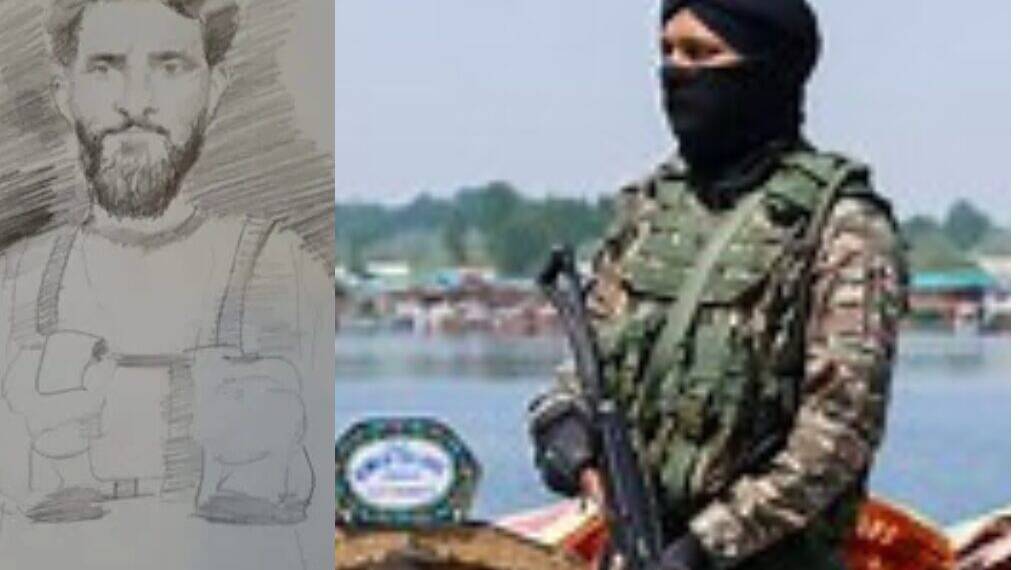In a breakthrough in India’s counter-terrorism campaign, elite Indian Army special forces, in coordination with Jammu & Kashmir Police, neutralized Hashim Musa, the alleged mastermind behind the Pahalgam massacre, in a high-stakes gun battle under Operation Mahadev.
Musa, a former Pakistani Special Service Group (SSG) commando turned Lashkar-e-Taiba (LeT) operative, was among three foreign terrorists killed in the upper forest ranges of Dachigam, located on the outskirts of Srinagar. His death marks one of the most significant blows dealt to Pakistan-backed terror infrastructure in Kashmir in recent years.
The Ghost Commander Falls: Identity Confirmed via Drone and Intercepts
Intelligence sources confirm that Musa’s identity was verified using drone-mounted cameras, satellite phone intercepts, and testimonies from arrested local harbourers. His face was captured in high-resolution imagery post-neutralization, providing irrefutable visual confirmation of his identity.
Security agencies had been tracking Musa for months, with surveillance teams pinpointing his movement patterns between Budgam, Tral, and Sonmarg. His elimination is being hailed as a strategic victory by Indian forces and a symbolic retaliation for the Pahalgam bloodbath.
From SSG to LeT: Pakistan’s Shadow Agent in Kashmir
Hashim Musa’s profile reads like a covert ops playbook. Once a member of Pakistan’s elite SSG, Musa was reportedly “loaned” to Lashkar-e-Taiba by Pakistan’s military intelligence in 2022, a move aimed at injecting battlefield expertise into jihadi operations in Jammu and Kashmir.
Trained in high-altitude warfare, guerrilla tactics, and survival in hostile terrain, Musa was a prized asset in the LeT ranks. For nearly two years, he operated with near impunity, building sleeper cells, coordinating cross-border arms drops, and planning high-impact strikes while managing to stay undetected in the Valley.
The Butcher of Sonmarg: A Trail of Blood
Before orchestrating the Pahalgam massacre that left 26 civilians dead, Hashim Musa was believed to be the brain behind the 2023 Sonmarg Z-Modh tunnel attack, which claimed the lives of six laborers and a doctor. His name has also been linked to several deadly ambushes in Poonch and Rajouri, including the 2023 Army truck attack.
Musa’s role was not just tactical but strategic—he handpicked targets, conducted reconnaissance, and directed strikes while remaining in the shadows. Within intelligence circles, he was dubbed “The Ghost Commander”, elusive and lethal.
Pahalgam Attack: Local Help, Foreign Leadership
The Pahalgam attack on April 22, 2025, was designed for maximum psychological and economic damage—executed in a tourist zone during peak season, targeting civilians, and aimed at disrupting Kashmir’s fragile return to normalcy.
While three residents—Parvaiz Ahmad Jothar, Bashir Ahmad Jothar, and initially Adil Hussain Thoker—were investigated, it is now confirmed that no local militants participated directly in the killings. Their roles were limited to logistics, providing food and shelter in exchange for small payments.
This affirms what intelligence agencies have long claimed: the operational core of the Pahalgam massacre was foreign, driven by LeT and planned at the highest levels by Musa and his handlers in Pakistan.
Operation Mahadev: More Than Just an Encounter
Operation Mahadev, which took place on July 27, 2025, in the forests of Dachigam, is being seen as a watershed moment in India’s post-Pahalgam response. The operation was the culmination of a month-long surveillance campaign, combining ground-level human intelligence with drone reconnaissance, signal intercepts, and collaborative intelligence sharing among the Indian Army, Jammu & Kashmir Police, and national agencies.
Musa was taken down in a fierce gunfight alongside two other Pakistani nationals. The use of drones for both reconnaissance and real-time verification of enemy casualties underlines the modernization of India’s counter-terror doctrine.
National and Strategic Significance
Musa’s killing comes just weeks after Operation Sindoor, India’s tri-service precision strike on May 7, which wiped out nine terror camps across Pakistan and PoK. Over 100 terrorists were killed, including high-value LeT and JeM commanders.
Together, Sindoor and Mahadev represent India’s new two-pronged approach—swift external retaliation paired with relentless internal disruption of terror infrastructure.
CDS General Anil Chauhan stated that operations like Mahadev show “India’s readiness to neutralize threats in real-time, not after the damage is done.” Defence Minister Rajnath Singh called it “symbolic justice for every Indian family affected by terror.”
Message to Pakistan and the World
India has repeatedly blamed Pakistan’s military-intelligence nexus for harboring, training, and deploying terrorists like Musa. His SSG background and seamless integration into LeT’s command structure provide further proof of state complicity.
Global observers, including think tanks in Washington and Brussels, have noted that India’s targeted response model—balancing restraint with readiness—may become a template for democracies battling hybrid threats.
End of the Ghost Commander
The elimination of Hashim Musa, the Butcher of Sonmarg and Mastermind of Pahalgam, is not just a battlefield win—it’s a morale victory, a justice delivery, and a strategic blow to the Pakistan-backed terror enterprise operating in Kashmir.
As Indian security forces continue mop-up operations across Tral, Lidwas, and Kupwara, the message is clear: India will pursue and eliminate those who seek to bleed its people—no matter how long it takes or how deep they hide.
The ghost has fallen. And with him, a part of Pakistan’s terror game in Kashmir has collapsed.








